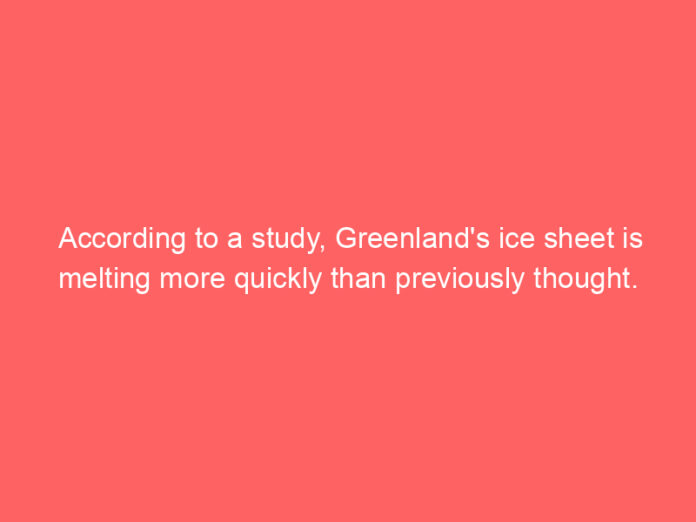
According to a study published on Wednesday in the journal Nature, scientists have underestimated how quickly Greenland’s ice sheet is melting, and the loss is now projected to be 20% greater than previously thought.
Researchers utilizing satellite photos discovered that Greenland’s ice sheet had lost over 5,091 square kilometers of ice since 1985. Scientists noted that previous estimations did not account for calving, or the breaking off of ice at a glacier’s terminus, which is a process known as melting along the ice sheets’ borders.
Researchers discovered that Greenland’s ice sheet loses roughly 193 square kilometers of ice annually.
According to study co-author Chad Greene and his colleagues, they qualified the calving’s extent, which expanded the area of lost ice mass.
To calculate monthly ice melt, they integrated “236,328 observations of glacier terminus positions” that were gathered from different public data sets. Based on their findings, nearly all of Greenland’s glaciers lost some amount of mass between 1985 and 2022.
Researchers discovered that the seasonal variations in glacier melting, which occur primarily in the summer and winter, may serve as a predictor of the long-term loss of ice mass. According to the study, meltwater inflows and ocean warming throughout the summer can change the thickness of glacial ice and accelerate the rate of glacier melting. The glacial melt rate can be altered by “a melange of sea ice and icebergs” in the winter.
The majority of the glacier borders the scientists surveyed were already underwater, thus they concluded that “this retreat does not appear to substantially contribute to sea level rise” in their study. On the other hand, the loss might influence global thermal energy distribution and ocean circulation patterns.
But researchers have already discovered that the second-biggest cause of sea level rise is the Greenland ice sheet. In a previous study, researchers discovered that between 2006 and 2018, more over 17% of the rise in sea level was caused by a single sheet melting.
When global temperatures rise, glaciers and ice sheets melt more quickly than they can replenish themselves with snow and ice. This is especially true in the oceans, which absorb 90% of the planet’s warming. The melting of ice is accelerated by increasing ocean temperatures and air. Li Cohen provided input for this article.














































